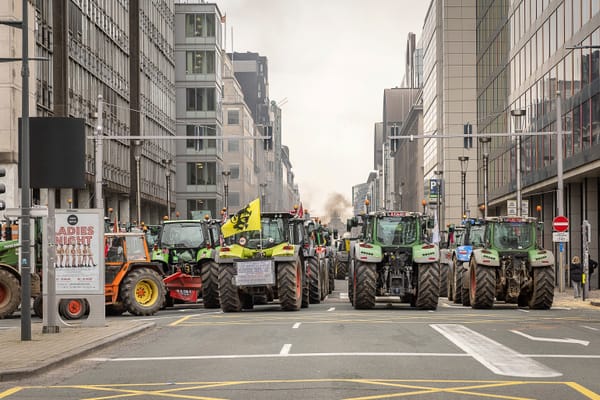In the summer of 1381, tens of thousands of English peasants set off toward London, setting fire to government buildings and destroying tax records along the way. Like most rebellions that flared up across Europe in the late Middle Ages, what came to be known as the Peasants’ Revolt did not seek to topple the monarch. On the contrary, the rebels hoped for a restoration of the natural order—a covenantal bond between the ruler and the ruled. They believed this order had been disrupted by the corrupt nobility, which had imposed new poll taxes and laws limiting farmer wages and even attempted to turn free laborers back into serfs. The disorder followed in the wake of the Black Death and long, costly military conflicts in Europe, notably the Hundred Years’ War between England and France.
These remote events have found an echo in recent months, as European farmers have revolted against EU policies they regard as devastating to their livelihood. In late February, thick black smoke rose from piles of burning tires in central Brussels, and at the helm of a protest convoy, a lone tractor faced off against the police, forklifting barricades as water cannons soaked protesters in the already damp winter weather. The amassed farmers responded in kind, spraying manure across the EU quarter’s paving stones. The clash took place a day before the European Parliament passed the Nature Restoration Law, a piece of legislation aimed at “restoring degraded ecosystems” that, according to critics, will reduce agricultural output, disrupt supply chains, and drive up food prices.
“European farmers are going medieval on the European Union.”
European farmers are going medieval on the European Union. The question now is whether the centralized power vested in EU institutions will find a way to beat them into submission—as European rulers managed to do to their forebears—or whether this inchoate revolt will coalesce into a movement capable of challenging Brussels technocrats.
